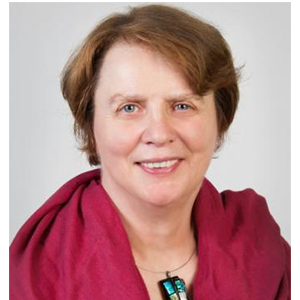Julia Lane
Affiliation: New York University; RTI International
Educational Background: MA, statistics; PhD, economics, University of Missouri
Julia Lane was born in England—her mother was Swedish and her father was English. They immigrated to Palmerston North, New Zealand, when Lane was six and she grew up there. Her undergraduate degree was in economics and Japanese from Massey University in New Zealand. Lane then came to the US and earned an MA in statistics and a PhD in economics. She married another economist and has been in the US ever since. She is currently a tenured full professor at the Wagner Graduate School of Public Service at New York University and a visiting fellow at RTI International.
Lane became interested in data and statistics because, as a labor economist, she wanted to answer practical questions like “What is the return on investment in on-the-job training?”
Lane became interested in data and statistics because, as a labor economist, she wanted to answer practical questions like “What is the return on investment in on-the-job training?” That requires understanding the effects of worker training on both firm productivity and worker labor market outcomes. The only way to do that is to use new types of data, such as universal administrative records on firms and workers, in addition to surveys. That led to developing new methods of combining data from different sources, addressing bias and measurement issues, figuring out the reasons for missing data, and then doing robust analysis that could be used in practice, which is what statistics and data science is all about.
Lane then realized she could do more public good by creating new data infrastructures than applying new econometric techniques to existing data, and that led to the following series of programs she co-founded or co-initiated:
- The Longitudinal Employer-Household Dynamics Program at the Census Bureau
- PatentsView
- The Integrated Data Infrastructure at Statistics New Zealand
- The Institute for Research on Innovation and Science at the University of Michigan
- The NORC Remote Access Data Enclave
- The Coleridge Initiative, including its Administrative Data Research Facility and Applied Data Analytics Training Programs
- A data search and discovery platform called Democratizing Data
Lane considers her greatest public good the accomplishment other people’s work. So many people and governments have used the new data infrastructures and made a difference in our understanding of economic activity. Lane has also been told by women with children that the two remote access facilities she started were game changing for them because they didn’t have to juggle the child care issues that arise when going long distances to access confidential data.
In her own work, Lane is proud of the article “Women Are Credited Less in Science Than Men” in Nature. It shows how important statistics is for data because it highlights the importance of understanding selection bias in the data-generating process. The finding that at least part of the observed productivity gap between men and women scientists is due to differences in attribution, rather than differences in contribution, has important implications for science policy.



















Leave your response!